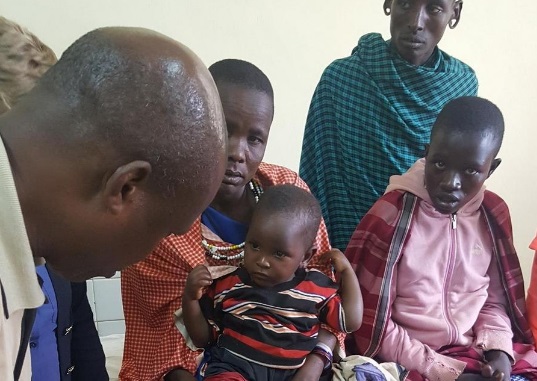Through support from the Lake Travis community, children in Tanzania have access to clean water, food, educational resources and medical supplies.

In 2016, the Lake Travis Rotary Club (Texas, US – D 5870) launched its 3D limb project with a goal to print artificial sockets using 3D printing methods to fit children in Africa.
The Rotary club collaborated with Baylor College of Medicine and Trifusion Devices in College Station to develop the technology needed to print the artificial limbs, an effort that reduces the cost of limbs and shortens the time required to fit a child, project officials said.
Donna Gunn, executive director of Africa’s Promise Village, a school programme that will begin in Tanzania in 2019, and a member of the Lake Travis Rotary Club, said the idea began in 2010.
She said a friend of hers visited Tanzania and told Gunn about the terrible conditions for children, and how there was no access to education.
She said kids would line up at the school door and beg to enter, but because the parent didn’t have enough money for tuition, they were not allowed in.
Gunn said the cost of tuition in Tanzania ranges from $1 to $5 a month, but even that is more than some parents have.
“In visiting with the Masaai (tribe) and Divine Word Missionary, the parish priest in the area, I made the decision to try to help,” Gunn said.
“What I learned very quickly is you can’t start with school, you have to start with a water well because you have to be able to feed and hydrate children. Without water you can’t do anything.”
Gunn said that of the 25 Masaai villages, there are only a handful of water wells.
Most villagers use muddy water from a dam or polluted water from a pond that animals defecate in.
She said that because the village does not have immediate access to clean water, pregnant mothers are drinking polluted water, which can result in deformities and deficiencies.
The cultural beliefs of the Maasai tribe shun and isolate children with deformities, further cutting off access to education for them.
In 2015, Gunn said the Rotary club wrote a grant for funding of a water well.
In partnership with the Rotary club, the village of Lenjani received a well.
While installing the well, Gunn said she met and took a little girl to an orthopedic hospital in Moshi, Tanzania.
She said when the group arrived at the hospital, they saw a huge room filled with children with missing limbs.
She said less than 20 per cent of kids in the country would ever get a limb because families have no money and the government doesn’t offer health assistance.
Gunn said that is where the Rotary club wants to help next.
Barker Keith, a member of the Rotary club and coordinator for its limb project, said that when he returned home, he began researching how to help.
He said no one in the United States was offering 3D limbs and that after working with Baylor and Trifusion, two years later the group is able to provide 3D limbs to children, giving them a normal life.
Keith said the programme has made obtaining a limb much more likely.
“The current technology of fitting limbs in Tanzania is a longer period of time and doesn’t fit as well,” Keith said.
“This 3D limb fits better, is quicker to make and it’s less expensive.”
Gunn said the next step is educating and socialising the children and ensuring the limb works properly.
She said through her Africa’s Promise Village, a school programme that started in Tanzania in 2018, they are able to educate the children and periodically examine their limbs as they grow.
She said the programme aims to enroll 10 new students with missing limbs each year.
Gunn said about 300 children were expected to start at the school when it opened this month. The programme also offers boarding, food and water.
The Rotary club is looking for donations to help fund its 3D limb project and support their educational needs at Africa’s Promise Village.
Local support for the 3D limb project is being provided by Steel Magnolia’s Gift Shop.
Ten per cent of the profit from sales in December were to be donated to the project.
Gunn said donations can also be mailed and made online to the Rotary club.
She said if the Rotary club sponsors 10 children each year, that will cost about $30,000.
“If the average family eats out about twice a week, choose to give up eating out once a week to donate to the project,” Gunn said.
“That would be amazing. Little donations can go a long way.”
Source: Statesman





